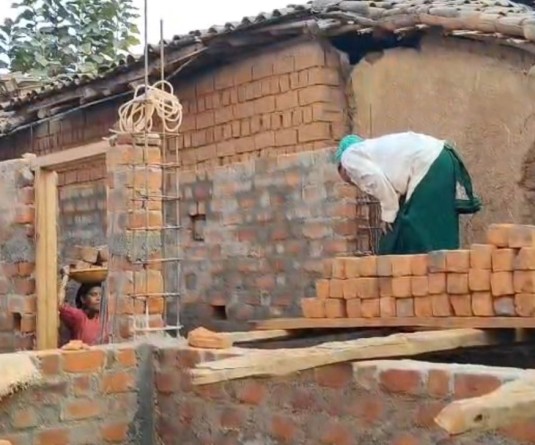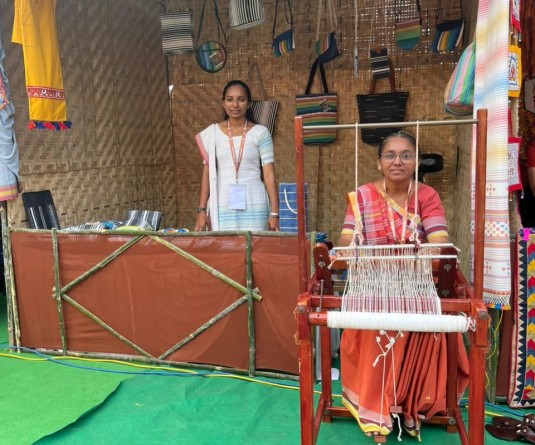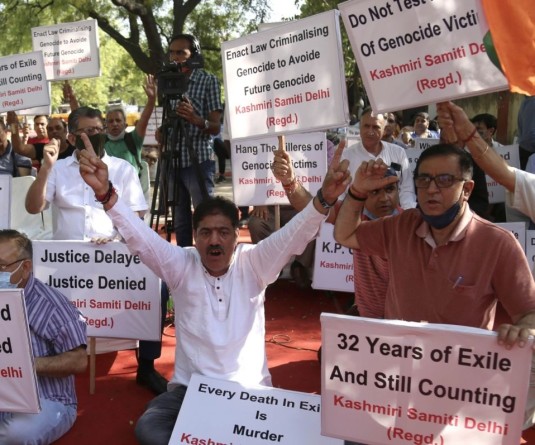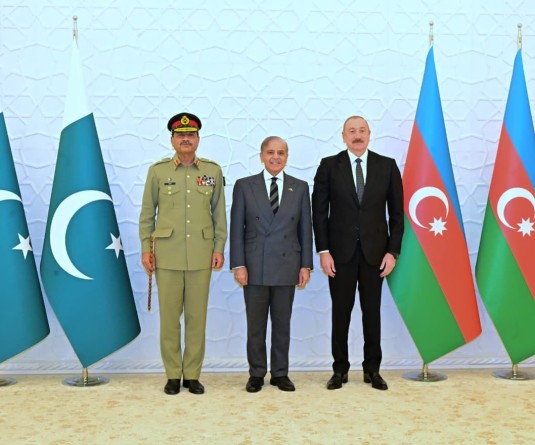IANS Photo
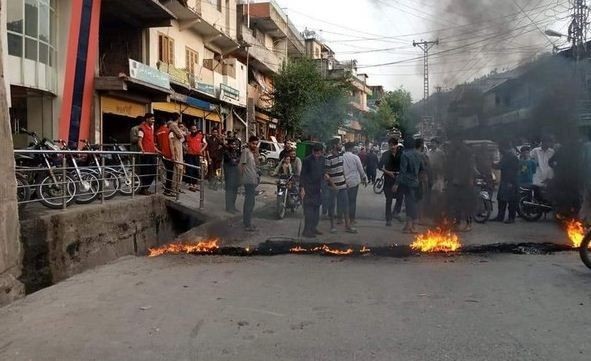
Islamabad, October 16 (IANS) Pakistan has been facing a period of severe internal and external turmoil with ongoing tensions with Afghanistan at the border, protests in Pakistan-occupied Kashmir (PoK) and religious unrest that highlights Islamabad losing control on multiple fronts, a report has said.
Pakistan, a report in 'The Global Kashmir' detailed, stands isolated, divided and wounded as its foreign adventures have backfired, its domestic control is slipping, and its people are losing hope.
"Pakistan is once again witnessing a period of severe internal and external turmoil. Over the last few days, the country has faced military tensions with Afghanistan, violent protests in Pakistan-occupied Kashmir, and political agitation from religious parties like Tehreek-e-Labbaik. Together, these developments have painted a grim picture of a state sinking deeper into crisis, with its leadership appearing helpless before waves of instability," the report mentions.
Situation at Pakistan-Afghanistan border escalated after Pakistan carried out airstrikes in Afghan territory, claiming to target hideouts of the Tehreek-e-Taliban Pakistan (TTP). Afghanistan condemned the strikes and launched retaliatory attacks against Pakistani border positions. Heavy exchange of fire took place between forces of two nations in the Kurram region and along key crossings like Torkham and Chaman. Taliban officials claimed Pakistani side suffered heavy losses. Although Islamabad has admitted casualties but it has tried to downplay the numbers.
In an opinion piece for Global Kashmir, Syed Jahanzeeb wrote, "While the western border burned, unrest spread inside Pakistan-occupied Kashmir. The Awami Action Committee has been leading massive demonstrations across the region, accusing Islamabad of exploiting local resources and denying basic rights to the people. The protesters have demanded fair electricity tariffs, subsidies for essential commodities, and the abolition of seats in the legislative assembly reserved for Kashmiri refugees living in Pakistan. They argue that these seats distort democratic representation and allow Islamabad to control the local government from afar."
During the protests, clashes erupted between demonstrators and security forces in Mirpur, Kotli, and Rawalakot, causing multiple deaths and injuries. In response to the protests, Pakistani authorities imposed curfews, blocked internet services, and deployed additional troops instead of addressing the core grievances. The protests in PoK demonstrate decades of neglect and exploitation by Pakistani authorities who have used the territory for propaganda while ignoring the real needs of its residents.
According to the report, religious extremism is destabilising major cities in Pakistan. The Tehreek-e-Labbaik Pakistan (TLP), known for its radical street power, organised protests under the banner of the 'Labbaik Ya Aqsa' Million March. Clashes erupted between police and protesters in Lahore and Rawalpindi as security forces tried to stop their march towards Islamabad. Pakistani authorities also imposed Section 144 and shutdown mobile and internet services in several areas. The TLP’s rise showcases the weakness of Pakistan’s political institutions. Pakistan's successive governments, instead of taking action against extremism, have relied on these groups for short term political benefit.
"These three crisis — border conflict with Afghanistan, rebellion in Pakistan-occupied Kashmir, and religious unrest inside the country — together portray a Pakistan losing control on multiple fronts. Its foreign policy appears directionless, its economy is sinking, and its society is sharply divided along political, sectarian, and regional lines."
Pakistan today showcases the image of a nation caught in its own contradictions. It suppresses protests in the territories it claims to represent, allows religious extremists to grow and panics when they challenge its authority.
The report added: “For now, Pakistan stands isolated, divided, and wounded. Its foreign adventures have backfired, its domestic control is slipping, and its people are losing hope. What was once described as a strong Islamic republic now resembles a nation on the edge, struggling to hold itself together while the world watches its slow descent into disorder.”


